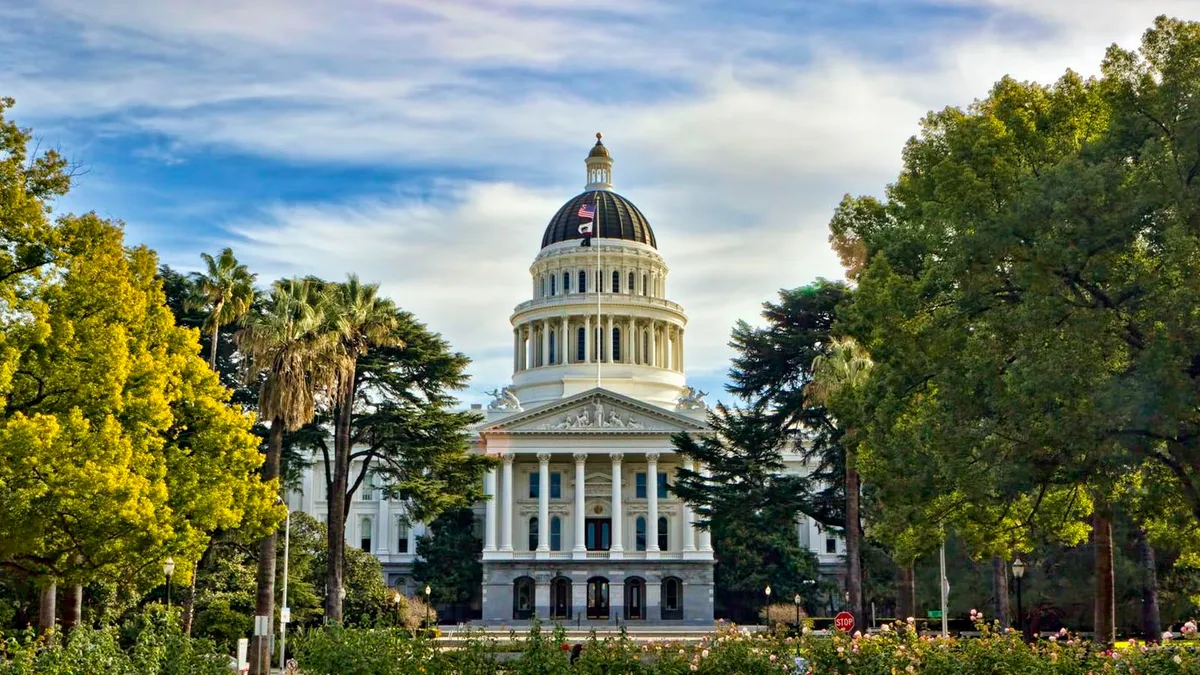Dive Brief:
- SB 705, a bill to ban the use of expanded polystyrene food containers in restaurants, grocery stores and food trucks throughout California, fell short in the State Senate on Jan. 30. The votes tallied 18-16, three short of a majority, as reported by the Los Angeles Times.
- Known as the Ocean Pollution Reduction Act, the bill would have prohibited food vendors from using EPS containers at the risk of multi-thousand-dollar civil penalties. Language was included for temporary waivers due to economic hardship. This would have taken effect for chain establishments in 2020 and all others in 2022. Hospitals, correctional facilities and K-12 schools would have been exempted.
- Support was registered by dozens of municipalities and environmental organizations, including the usual names such as Californians Against Waste, Natural Resources Defense Council, Sierra Club, Surfrider Foundation and Upstream. Opposition was registered by groups including the American Chemistry Council, California Chamber of Commerce, Dart Container and the Plastics Industry Association.
Dive Insight:
This is the second time that the bill's sponsor, Sen. Benjamin Allen of Santa Monica, has gotten it to the floor for a vote and missed out by a thin margin. SB 705 went down on its first attempt in May 2017 by a 15-19 vote.
More than 100 municipalities in California now have some form of EPS ordinance, from a fee in Oakland to more stringent bans in San Francisco and Santa Monica. As written, Allen's bill would not preempt any of those ordinances.
In addition to the usual food service and packaging industry opposition, at least one state senator who voted against it raised the question of whether the bill was still needed, with food chains such as McDonalds moving toward different packaging material. Supporters of the bill maintain that EPS has become a larger litter problem than plastic bags, in part because the material breaks down and is harder to capture, so a universal policy was still necessary.
Based on California's history with plastic bag policy — which was passed in 2014, challenged by industry and then affirmed via a 2016 ballot referendum — advocates may be in for a similar fight when it comes to EPS. Packaging groups now point to San Diego's decision to include EPS in its curbside recycling program last year and have remained actively opposed to ban efforts in cities such as New York.
Like many materials, EPS is technically recyclable and examples do exist of companies finding ways to do it. However, many feel a convincing case has yet to be made proving the material can be recycled in a way that's both economically and environmentally feasible on a large scale, especially when food contamination is involved.















